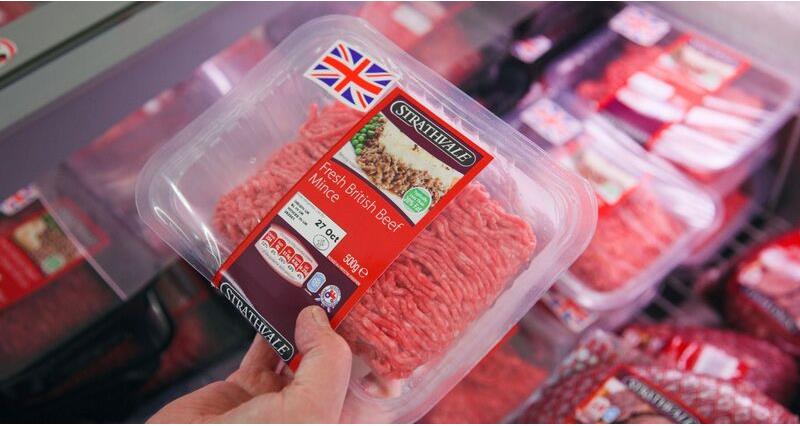The will look at how to improve country of origin labelling for certain goods, including how and where this information is displayed and what products should be included.
For example, if imported pork is cured into bacon in the UK and features a Union Jack, it would explore ways to make it more obvious to consumers that the pig was reared abroad – such as increasing the size of the country of origin text, or placing it on the front of the packet.
The government has also set out plans which would require ‘method of production’ labelling on pork, chicken and eggs, including a proposed mandatory ‘five-tier label’ for both domestic and imported products.
The five tiers and standards would be primarily based on methods of production, differentiating between products that fall below, meet and exceed relevant baseline UK animal welfare regulations.
Labelling on its own ‘not the answer’
The consultation will also look at extending mandatory labelling requirements to menus at cafés and restaurants and the use of national flags on labels.
Defra Secretary Steve Barclay said that “too often, products made to lower standards abroad aren’t clearly labelled to tell them apart”.
“That is why I want to make labelling showing where and how food is produced fairer and easier to understand – empowering consumers to make informed choices and rewarding our British farmers for producing high-quality, high-welfare food.”
NFU Deputy President David Exwood said that “food labels must be clear, simple and contain accurate information, including country of origin, to give shoppers easy access to the information they want and for those that want to, select products produced by British farmers and growers which they know are traceable, safe and produced to high animal welfare and environmental standards”.
“Labelling on its own is not the answer to safeguarding our own high standards from imports that are produced under conditions that would be illegal in the UK.”
NFU Deputy President David Exwood
Those dining out “should also understand the provenance and standards with which their food is produced,” he added.
“However, labelling on its own is not the answer to safeguarding our own high standards from imports that are produced under conditions that would be illegal in the UK,” the Deputy President warned.
“That is why one of our asks in our election manifesto calls on the next government to enshrine a set of core environmental and animal welfare standards in law for all agri-food imports.
“�ʼһ���will look closely at this consultation and seek the views of our members before responding.”
QR codes for complex metrics
�ʼһ���has consistently called for clarity on food labelling, suggesting that consumers trust British produce and steps to improve country of origin labelling will make it easier for consumers to choose British produce.
Existing technology, such as QR codes, could be utilised to direct consumers towards information such as environmental metrics or animal welfare information.
NFU Food Business Relationship adviser Helen Hunt has previously warned that policymakers should “wary of swallowing the ‘labelling pill’ as the remedy to meeting public health, environment and societal challenges”.
The consultation will run for eight weeks, closing at 11:45pm on 7 May 2024.
See our manifesto asks
Our manifesto
Our general election manifesto – Farming for Britain's Future – outlines our key asks of the next government to ensure farmers and growers can continue to deliver for the environment, economy and local communities while producing more of the great British food we all enjoy.

